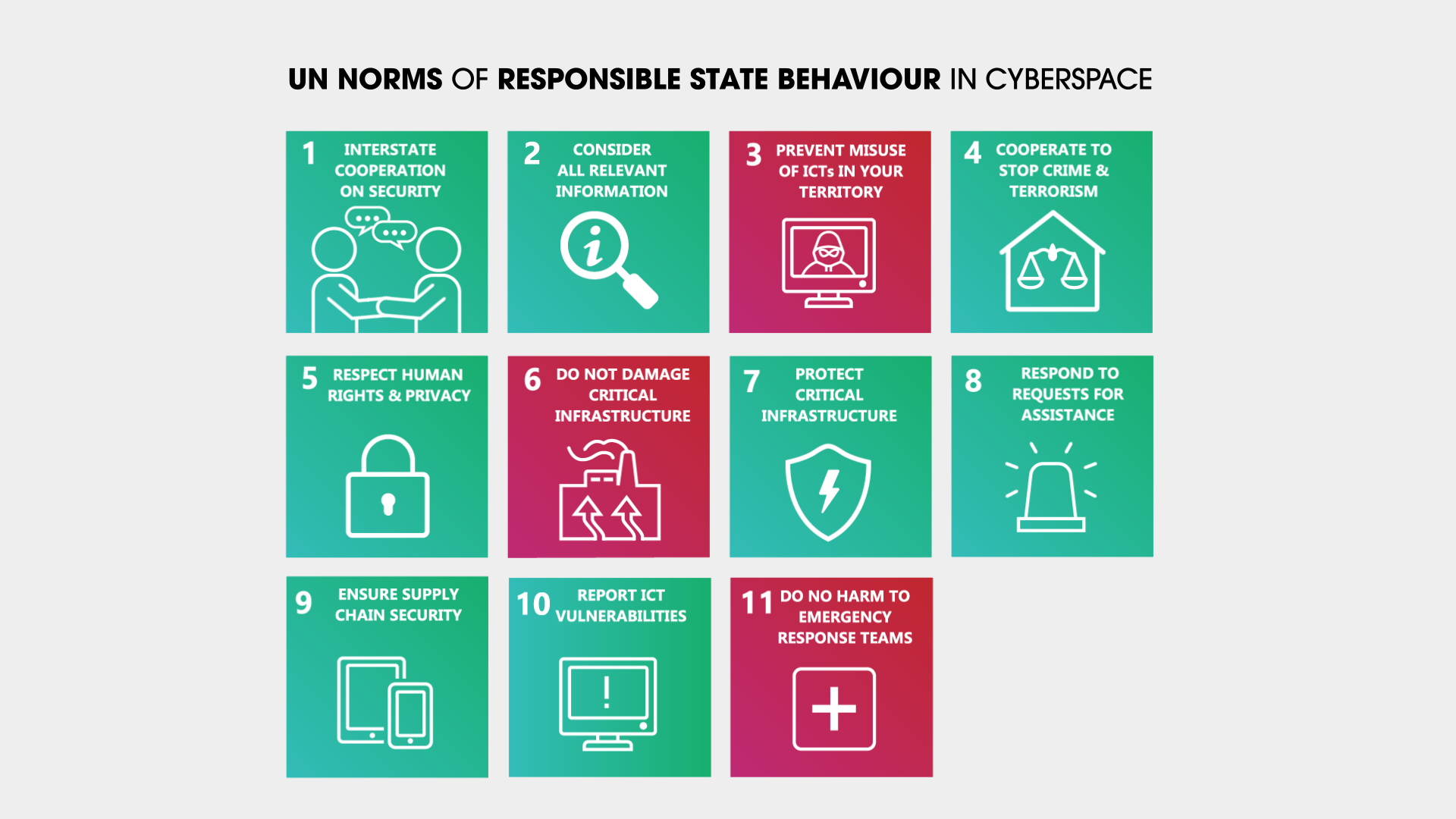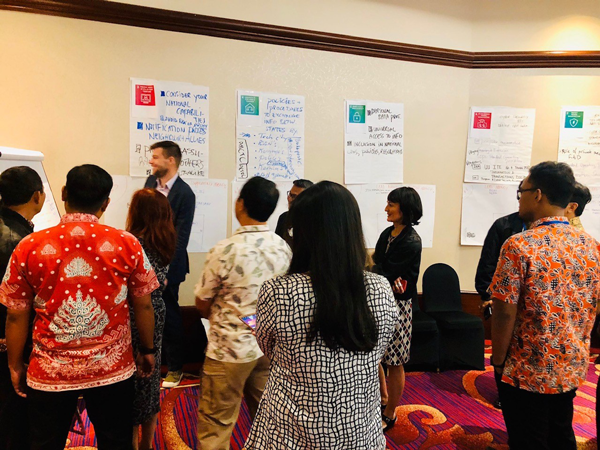Take up the challenge and help develop practical guidance to implement the United Nations' norms of responsible state behaviour in cyberspace
Norms graphics
Today the Australian Strategic Policy Institute (ASPI), in collaboration with the UK Foreign, Commonwealth and Development Office (FCDO) and the Australian Department of Foreign Affairs and Trade (DFAT) released a collection of downloadable resources to support the global community's efforts to raise awareness and implement the agreed United Nations’ (UN) cyber norms. Together with international law, the 11 UN norms of responsible state behaviour detail how countries should and should not behave in cyberspace.
"We encourage everyone with an interest in peace and stability in cyberspace to use these graphics in your work, whether that’s in international organisations, government, the IT sector, civil society, the technical community, media or academia." -Kathryn Jones, Head of Cyber Diplomacy, UK FCDO
Project to support norm implementation
The graphic materials were prepared as part of a joint FCDO and DFAT cyber capacity building project, delivered by the Australia Strategic Policy Institute (ASPI). The project supports members of the Association of Southeast Asian Nations (ASEAN) to implement the UN norms of responsible state behaviour in cyberspace.
The norms were endorsed by all countries in UN General Assembly resolution 70/237, as part of the UN framework of responsible state behaviour in cyberspace.
In 2018, ASEAN members reached a landmark decision when all 10 states subscribed in-principle to the UN norms of responsible state behaviour (link) and agreed to focus on regional capacity building implementing these norms.
The project activities also complement ongoing multilateral discussions, including those in the UN Open-ended Working Group (OEWG), the UN Group of Government Experts (GGE), and those between ASEAN states and the ASEAN Regional Forum.
Guidance on norm implementation
Countries and organisations are seeking guidance on best practice norm implementation.
The UK and Australia have shared examples of their national implementation [UK] [Australia]. Australia’s expert to the GGE has made publicly available her submission to the GGE, which provides commentary and best practice on norm implementation.
Based on the outcomes from training activities with ASEAN partners, ASPI has started to compile a compendium of regional best practices of implementation. Part of this has been included in this compilation that DFAT submitted to the OEWG.
Here's the challenge
“We need everyone - from the technical community, to policy advisers, to government ministers - to be aware of these internationally endorsed good practices.” – Johanna Weaver, Australia's expert to the UN Group of Governmental Experts; Head of Australia Delegation to the UN Open Ended Working Group
We are calling on everyone with an interest in peace and stability in cyberspace to take a close look at the 11 UN cyber norms and think of examples of implementation they have seen or experienced.
Tag us with your examples on Twitter: @LondonCyber, @_JohannaWeaver, @ASPI_ICPC, #UNCyberNormsChallenge
Then, in the coming weeks, watch ASPI's social media channels (@ASPI_ICPC) to share these examples of good practice and join the conversation on each of the 11 norms.

 1 Interstae cooperation on security
1 Interstae cooperation on security